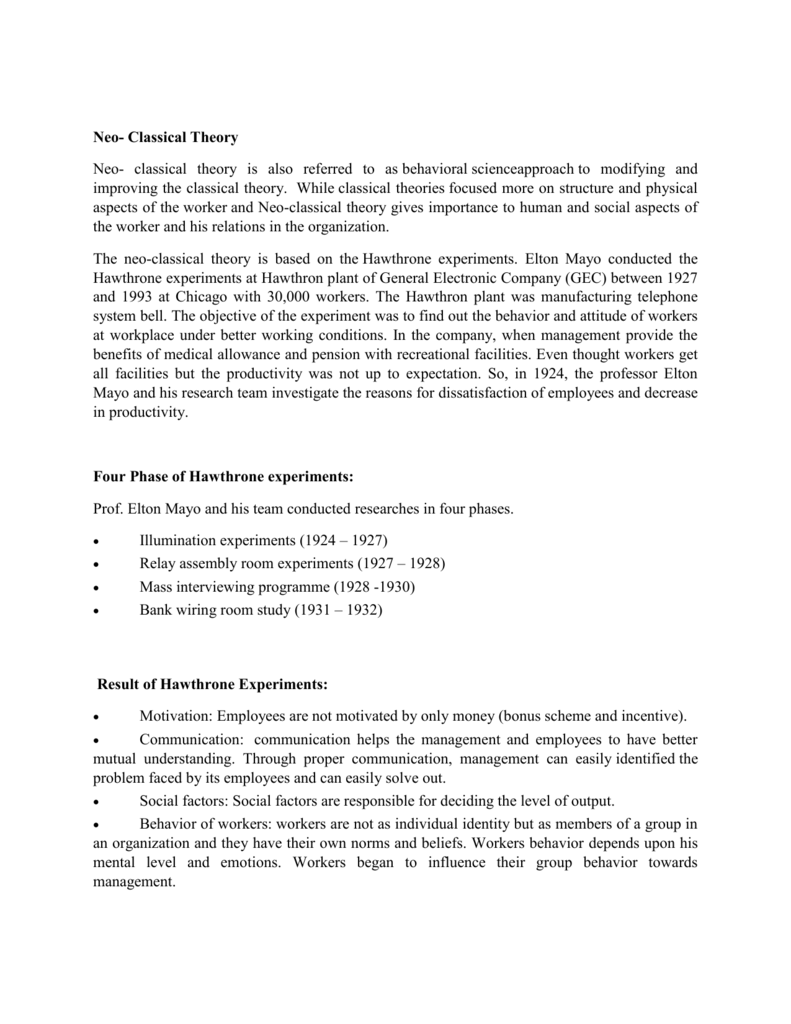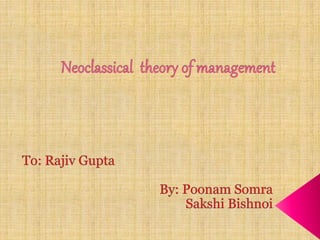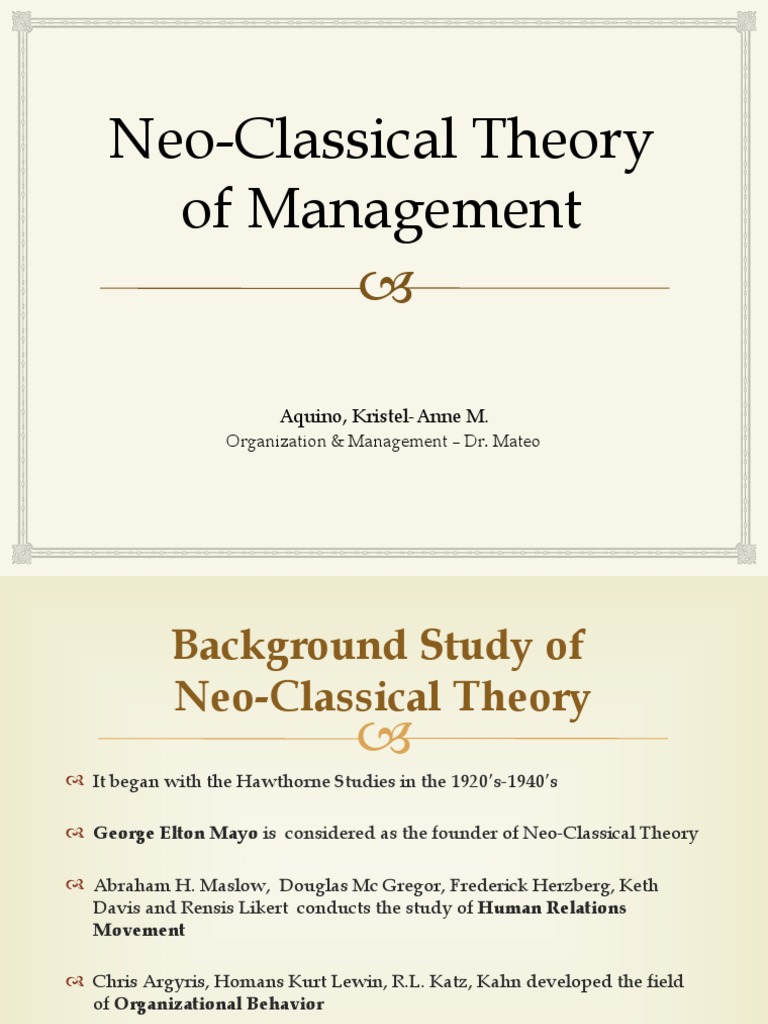Neoclassical management is a managerial approach that emphasizes the importance of individual decision-making, human relations, and motivation in the workplace. It is based on the belief that employees are motivated by a variety of factors, including personal satisfaction and self-actualization, and that management should focus on creating an environment in which these needs can be met.
The neoclassical management approach can be traced back to the work of early management theorists such as Henri Fayol and Mary Parker Follett, who emphasized the importance of communication and collaboration in the workplace. However, it was not until the mid-20th century that neoclassical management truly came to the forefront, with the emergence of theories such as Maslow's Hierarchy of Needs and Herzberg's Two-Factor Theory.
One of the key ideas behind neoclassical management is the concept of human relations, which emphasizes the importance of interpersonal relationships and communication in the workplace. According to this perspective, employees are more likely to be motivated and productive if they feel that they are valued and supported by their colleagues and superiors. Therefore, neoclassical managers place a strong emphasis on creating a positive work culture, fostering open communication, and building strong relationships with employees.
Another key aspect of neoclassical management is the recognition that individuals have unique needs and motivations. Rather than trying to impose a one-size-fits-all approach to management, neoclassical managers seek to understand the individual needs and goals of their employees and tailor their management style to meet these needs. This approach is based on the belief that employees are more likely to be motivated and productive if they feel that their work is meaningful and fulfilling.
In addition to its focus on human relations and individual motivation, neoclassical management also emphasizes the importance of decision-making and autonomy in the workplace. Neoclassical managers believe that employees are often more innovative and productive when they are given the freedom to make their own decisions and take ownership of their work. Therefore, they seek to create an environment in which employees are empowered to take charge of their own work and make decisions that align with the overall goals of the organization.
Overall, the neoclassical management approach is focused on creating a positive and supportive work environment that allows employees to feel fulfilled and motivated in their work. By recognizing the importance of human relations, individual motivation, and decision-making, neoclassical managers are able to foster a culture of collaboration, creativity, and productivity in the workplace.









:max_bytes(150000):strip_icc()/Neoclassical-Economics-v1-d612f990bedc44b0aa854b68a7208081.png)